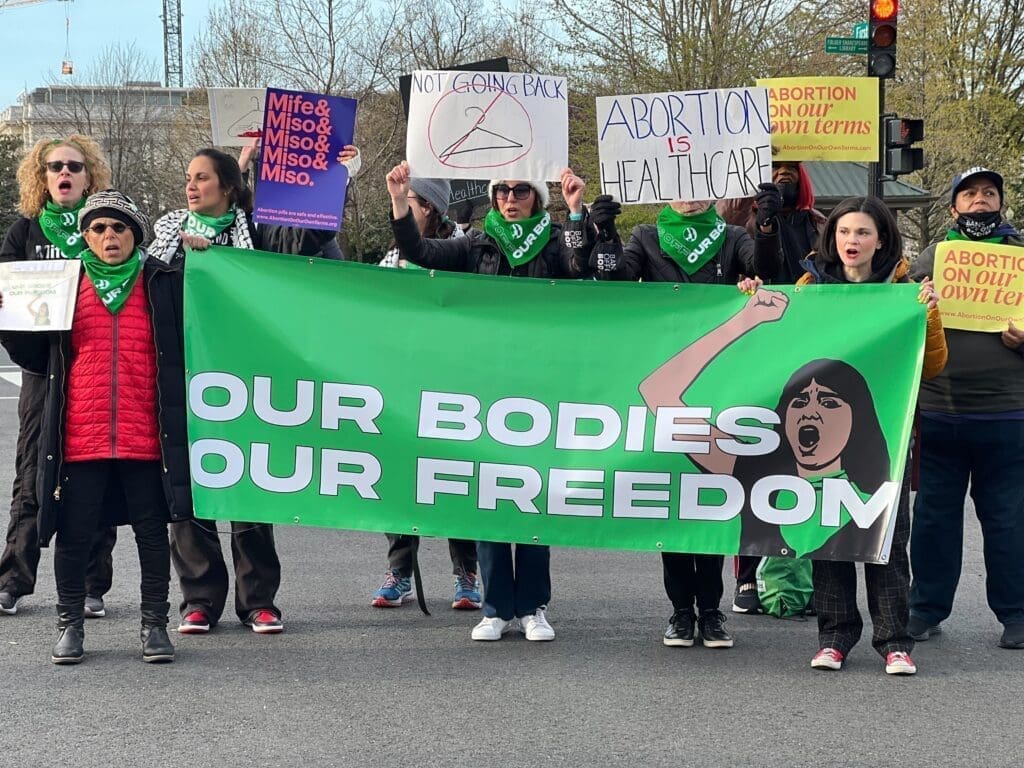Recently updated on October 26th, 2024 at 12:44 am
The U.S. Supreme Court likely had no idea of the furor it would unleash when it overturned Roe v. Wade two years ago. You could see the justices take a tentative step backward Wednesday when they unanimously voted to preserve access to abortion pill drug mifepristone.
Zany: I am all tuckered out when it comes to talking about abortion and the Supreme Court. It just seems like there are so many things happening that are way outside the norm or so blatantly corrupt and nothing is being done about it. It’s both disheartening and enraging.
The most obvious thing being a man who attempted a violent coup and a soft coup to overthrow the government just running for President again as if its the most natural thing to do. I’d prefer if America immediately jailed any leader that turned on the country they took an oath to serve and protect. That just feels more “normal” to me.
It feels like we’re in an upside-down world, doesn’t it? The least popular of the two parties seems to have more power than the one that’s currently in charge!
I said I was tuckered out and then I proceeded to rant about something off-topic. I guess that part is pretty much on brand for me, though actually.

As the ruling was a technical one, based on standing, we can debate whether the court actually has changed its opinion on reproductive freedom, but it’s clear that our nation’s top court had second thoughts about pushing the anti-choice agenda further.
For that, the entire nation can think Kansas.
It can be easy to forget the onetime conventional wisdom about the Kansas ballot measure that would have removed abortion care as a state constitutional right. The “Value Them Both” amendment had long seen as a shoe-in by supporters. It may have been so if it had appeared on the ballot before the overturning of Roe v Wade. Instead, it came to voters on August 2, 2022 — less than two months after the shocking decision.
Even then, the conventional wisdom had only shifted to predicting a close outcome.
But when push comes to shove, voters understood what was at stake. Voters saw that removing the right to choose in Kansas could lead — most probably would lead — to a total abortion ban in the state.
They didn’t want that. They don’t want that. And they will not want that in the future.
The supposedly tight vote instead was a blowout for pro-choice forces. Nearly 60% of Kansas voters rejected the amendment. Some 40% voted for it. That roughly 20 percentage point margin has been one of the most surprising and heartening results in all my years watching Kansas politics.
Other statewide votes followed. Resident of California, Kentucky, Michigan, Vermont and Ohio have all weighed in. More will have an opportunity to do so on election ballots this November. They will have the wind of Wednesday’s decision at their backs.
“The Supreme Court affirmed the most basic principle of the American legal system today: hypothetical scenarios don’t make for actual legal claims,” said Emily Wales, president and CEO of Comprehensive Health of Planned Parenthood Great Plains.
“Anti-abortion activists tried and failed to block patients from exercising their rights even in states where abortion remains legal. We know this fight isn’t over and that attempts to prevent care and stigmatize patients will continue, but it’s a relief to know that we can continue to provide medication abortion the way it has been offered for years: safely, effectively, and without out-of-state activists dictating care here at home.”
I’m not sure exactly what anti-abortion forces expected to happen after the demise of Roe. For that matter, I’m not sure that the pro-choice forces knew what to expect. Abortion rights had been part of our nation’s settled political landscape for more than a half century. Both sides probably expected some version of the past to be prologue. That is, the issue would be seen as a roughly 50-50 one, with anti-choice forces holding an edge in voter enthusiasm.
Instead, the exact opposite transpired.
Pro-choice forces racked up a string of political wins beginning here in Kansas. Abortion opponents are on their back heels and casting about for a new strategy: At this point, it appears to be attacking abortion-rights supporters. That approach hasn’t worked over the past two year, and I’m not sure why they expect it to work now.
Regardless, the Supreme Court surely knew that outlawing or severely curtailing access to mifepristone at this stage would induce an even larger and angrier backlash.
So they swatted down the issue.
In overruling Roe two years ago, Supreme Court Justice Samuel Alito wrote that “women are not without electoral or political power.”
The good justice, when he’s not living in a home with an upside-down American flag or claiming that one side must emerge victorious from the culture wars, has a point. Women do wield political power. They have shown they know how to use it.
But that shouldn’t obscure the grievous harm done to women and all Americans from ending Roe. It cannot obscure all the work that supporters of reproductive freedom have ahead of them.
Kansas showed the way after Roe. But there is still an awfully long path ahead.
Clay Wirestone is Kansas Reflector opinion editor. Through its opinion section, Kansas Reflector works to amplify the voices of people who are affected by public policies or excluded from public debate. Find information, including how to submit your own commentary, here.
Excerpts or more from this article, originally published on Kansas Reflector appear in this post. Republished, with permission, under a Creative Commons License.








